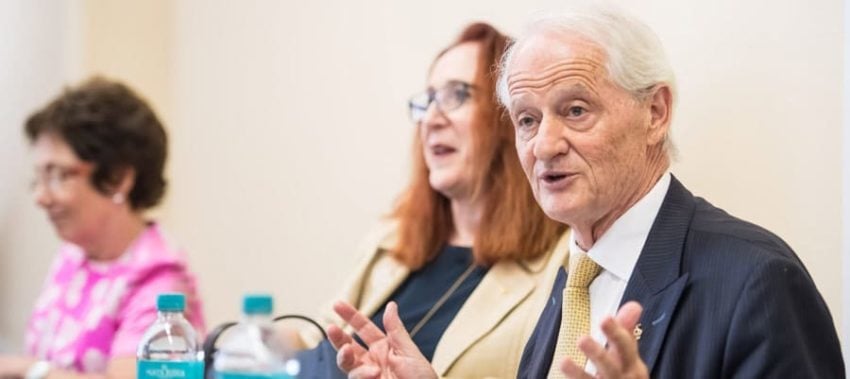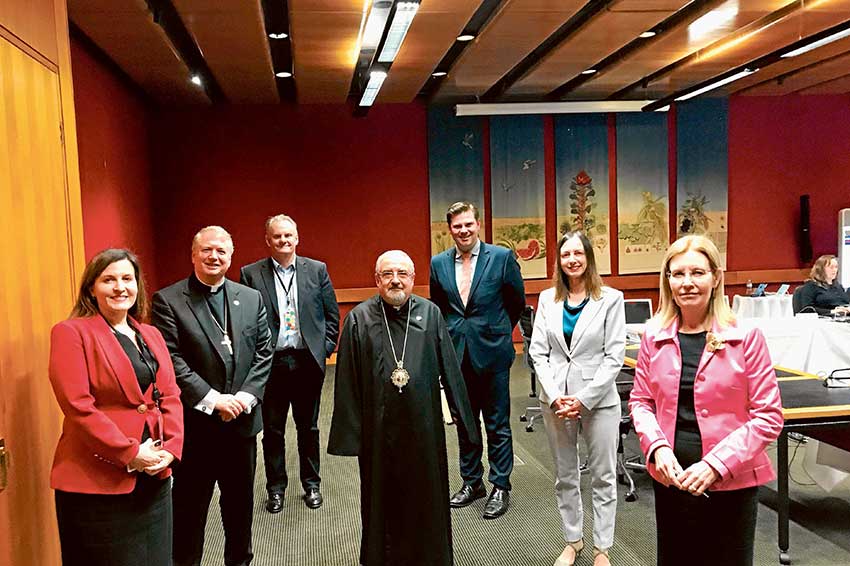
State politicians signal moves to limit religious freedoms
Now that the South Australian borders are pretty much open to all Australians except those who have been in Victoria in the last 14 days, can all of the exorcists in the country please make their way to SA because there is something seriously diabolical going on down there at the moment?
Over the next couple of weeks, the South Australian parliament will be voting on extreme abortion laws, the most egregious attacks on religious freedom this country since the banning of the Catholic Mass in the early years of settlement and will have a bill tabled to legalise euthanasia as well.
I used to think Victoria was the devil’s playground, but he seems to have skipped across the border once the 5km restrictions were lifted.
It might come as a surprise, but in both South Australia and New South Wales, it is currently not illegal to discriminate against a person on the basis of religious belief or activity.
Let’s start with the abortion bill first. Abortion is currently legal in South Australia under s82A of the Criminal Law Consolidation Act 1935 as long as two doctors say that it is necessary for the mother’s physical or mental health, or that the baby would be born with physical or mental abnormalities, and that the abortion occurs in a hospital.
A new bill has been proposed to allow just one doctor to perform abortions during the first and second trimesters simply on request, and only require two doctors to sign off on late-term abortions, with the only condition being that the doctors deem it “medically appropriate.”
The bill would also remove any requirements for abortions to occur in a hospital or any other medical facility and allows for abortion drugs to be prescribed for anyone up to nine weeks of pregnancy. The bill doesn’t do anything to protect women. In fact, removing the requirement for an abortion to be performed at a medical facility just increases the potential risk to them.
Then we move to euthanasia. A recent parliamentary inquiry stopped short of recommending euthanasia and assisted suicide in that state. Instead, it recommended that South Australia should monitor and review the outcomes in other states where both are available.
Religious freedom inquiry ignored
Evidently disinterested in the results of the taxpayer-funded inquiry, informed by the views of so many who took the time to make written and verbal submissions to it, South Australian Shadow Attorney-General Kyam Maher MLC announced that he will table a private members’ bill this month to legalise euthanasia and assisted suicide. It is not clear yet whether the government will allow it to be debated.
And what about religious freedom?
It might come as a surprise, but in both South Australia and New South Wales, it is currently not illegal to discriminate against a person on the basis of religious belief or activity. It is possible, for example, for a wedding reception venue to refuse a booking for a wedding reception for a Catholic couple, for a restaurant or café to turn away anyone wearing distinctive religious dress (eg a hijab or a clerical collar) and for many other forms of religious-based discrimination to occur, unchecked and unpunished.
The Ruddock Review into religious freedom recommended more than two years ago that these laws be changed to include protections for religious belief and activity in anti-discrimination laws in South Australia and New South Wales, bringing these states in line with the rest of the country.

There was no movement on this recommendation in New South Wales until the Hon. Mark Latham MLC tabled a bill to do this, and it is currently the subject of a parliamentary inquiry. Archbishop Anthony Fisher OP appeared before this inquiry recently (and did a stellar job!) We don’t know yet if this private members’ bill will receive support from either of the major parties, but we hope that it will.
The South Australian government has similarly done nothing to implement this recommendation but has instead announced that it will move in the opposite direction.
Rather than providing the additional recommended protections for people of faith, Premier Steven Marshall is proposing the winding back of the limited existing protections for people of faith and for faith-based institutions in particular.
There are too many dangers in this bill to do it justice here, but at its heart, the bill will remove any sense of freedom of religion in South Australia and limit it instead to freedom of worship. Religious institutions will still be permitted to decide the form of their worship and choose those who play a role in any religious observance, but that’s about where it stops.
For example, foster care agencies will not be able to preference married couples over single parents, heterosexual couples over same-sex ones, in the placement of children. A Catholic primary school could have no objection to a kindergarten teacher deciding that they will transition their gender in the middle of the school year, insisting that the five-year-olds now call them ‘Miss’ instead of ‘Mr’ and forcing their parents to have very difficult conversations about gender identity rather than focussing on teaching kids how to read.
And the door would be open to prevent Catholic schools from teaching any Church doctrine on matters of marriage and family life. The veneer of a public consultation has been called, with the public given less than four weeks to respond.
It will be a big month for our brothers and sisters in South Australia. Let’s keep them in our prayers.
Related articles:
